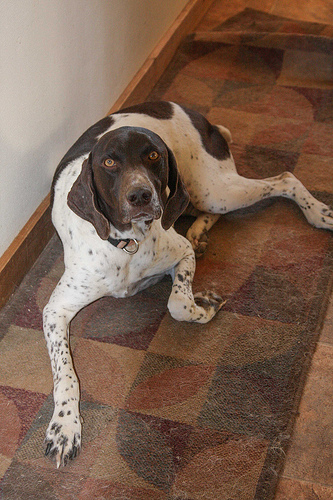
As your dog gets older, you may notice a little bit of a slowing in their steps and a little graying in their muzzle. There are other changes that happen as well, and one of them is their lower tolerance of climate change. Before the cold season hits, try to take your dog to the veterinarian. She can see if your dog has developed arthritis or advise you if your dog may have any special needs going into the winter.
Make sure to brush your dog regularly. Brushing helps keep your dog’s coat dry and fluffy which improves circulation and can help with their warmth. Never shave him to the skin for the winter months. That fur helps to keep him warm in the same way that we layer clothes to do the same for our own bodies.
If you are dealing with snowy conditions, try to dig out an area for your dog to do his business outside and keep the fur on his paw pads trimmed. That will prevent snow and ice from getting trapped there.
Your dog feels most loved when he lives inside with his human(s). If you know someone that keeps his dog outside, please encourage them to let Fido live indoors where he can be warmer and have more companionship. As your dog can’t speak, this also helps to keep an eye on him to see how he’s coping with the temperatures.
As your dog gets older, get him soft places to sleep that are low to the ground. His aging joints will very much appreciate it. A blanket placed on top of him before he sleeps is also appreciated.
Fatty acid supplements can also help in the winter (ideally if you start him a little bit before the winter months begin).
Also, keep his weight under control. The arthritis that can develop in older years in dogs is much helped by maintaining a healthy weight. This should improve his lifespan overall as well and keep him with your family as long as possible.
